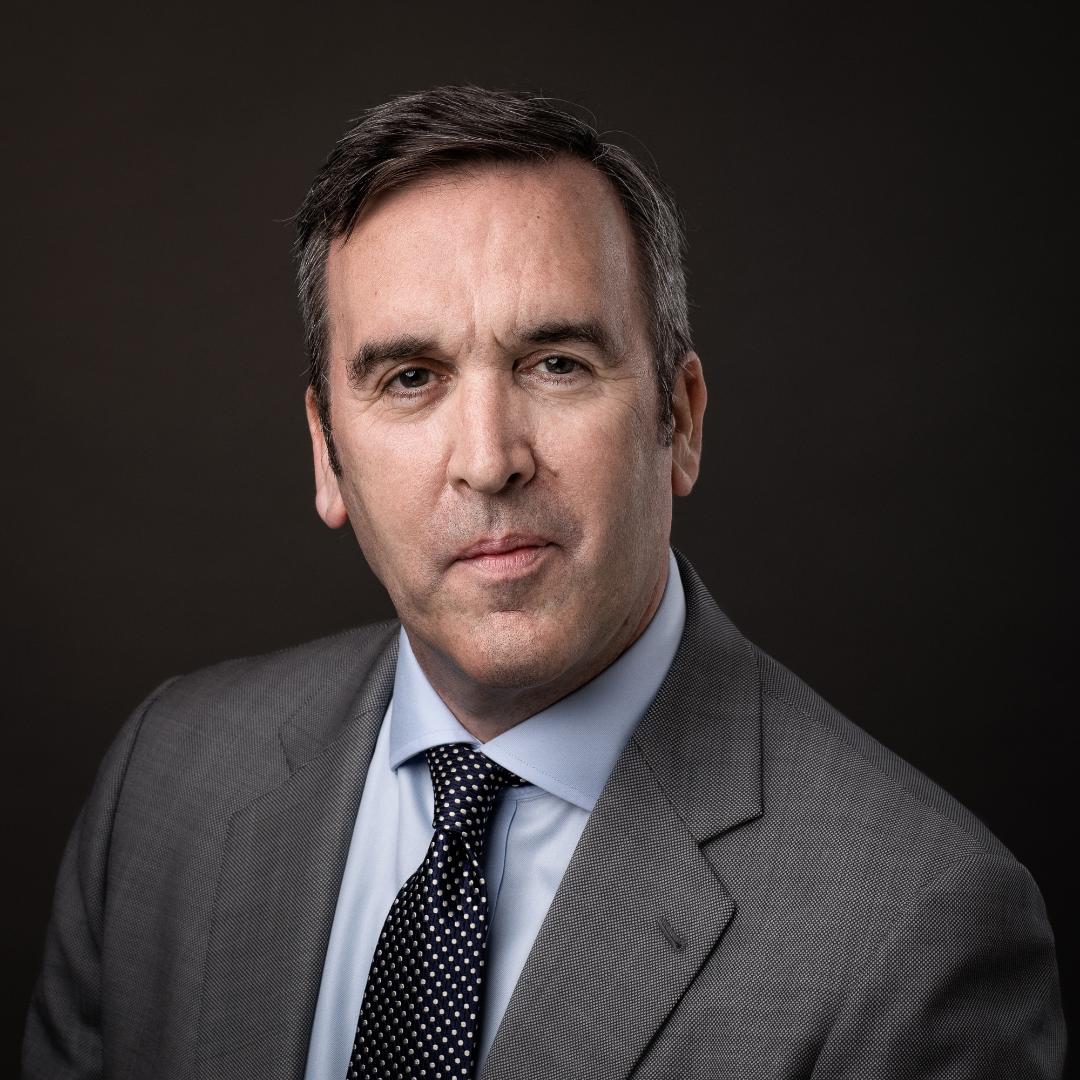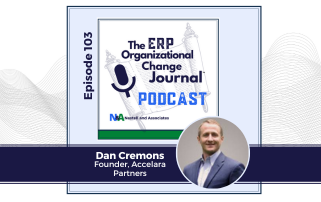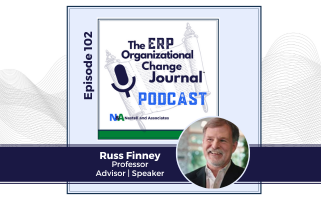About this Episode – Humology
In this episode, we discuss the title of our guest’s book “Humology: How to put humans back at the heart of technology” with Declan Foster (in which Joanne Griffin is a coauthor).
We delve into a fun, thought-provoking, and highly relevant topic regarding ERP and business systems and technology at large. Our conversation explores the influence of rapid technological progress on our work, personal lives, and the broader society. Join us as we cover “being in tune with technology”, technology adaptation, emerging technology, data overload, and The Capacity Gap, technology versus human psychology, and much more through the lens of Human-Centric Technology.

Declan Foster
Change and Transformation Specialist
Thought Leader
Author – Humology: Putting Humans Back at the Heart of Technology
More About Declan – Humology
Declan is an industry leader in change management and project delivery and provides consulting services to clients globally. He is ranked in the top 10 Thought Leaders in project management by thinkers 360.
He worked in consulting and HR Tech in London before moving to Australia, where he spent several years as a management consultant for PwC Consulting and IBM.
In 2005 he became an independent consultant providing expertise in change management and project delivery. He is always keen to learn about different industries and has worked in diverse organisations, including banks, not-for-profits, public transport and airlines.
Declan recently returned to his hometown of Dublin. He has written articles for leading technology websites and is a regular and active contributor on LinkedIn. Declan believes in lifelong learning and has recently studied Behavioural Economics and received an honours degree in Artificial Intelligence.
He is the co-author of Humology: How to put humans back at the heart of technology.
Website: www.humology.com
Episode Mentions
- Article – The Importance of Communication for Start-Ups
- Griffin and Foster (2022),“Humology: How to put humans back at the heart of technology”, https://www.amazon.com/Humology-humans-back-heart-technology/dp/1781336806
- Ulwick (2016), “Jobs to be Done: Theory to Practice”, https://www.amazon.com/Jobs-be-Done-Theory-Practice/dp/0990576744
- “Millers Law”, https://en.wikipedia.org/wiki/Miller%27s_law
- Zuboff (2019), “The Age of Surveillance Capitalism“, https://www.amazon.com/Age-Surveillance-Capitalism-Future-Frontier/dp/1610395697
- Center for Humane Technology, https://www.humanetech.com/
- Beckhard and Harris (1987) Organizational Transitions: Managing Complex Change, 2nd Edition. Boston, MA: Addison-Wesley.
- Thaler and Sunstein (2021), “Nudge: The Final Edition”, https://www.amazon.com/Nudge-Final-Richard-H-Thaler/dp/014313700X
- Rock (2008), “SCARF: A brain-based model for collaborating with and influencing others”. NeuroLeadership journal, 1(1), 44-52., http://dcntp.org/wp-content/uploads/2015/03/Readiness_for_change.pdf
Episode Highlights Timeline – Embracing Human-Centric Tech
Understanding Humology
04:46 What is “Humology” and what inspired you to write “Humology: How to put humans back at the heart of technology”?
06:27 In describing your book on your site you share “We need to talk about the future! Technology is advancing faster than we can keep up with. We are no longer living at the speed of humanity. Technology dictates the pace while we battle to keep up.” What are some negative consequences we see with technology outpacing how humans live, think, and work?
The Future of Human-Centric Technology
07:52 You also share that “We are approaching a tipping point; to build better technologies tomorrow, we have to start with new principles today.” So, I would like to share some of those principles with our listeners. In your book you share how to “Build solutions that address real needs”, what do you mean by that exactly, what would that look like?
10:27 You discuss how “in part, in order to minimize disruption and increase adoption” that you need to “Design products that work in harmony with human psychology”. Tell our listeners more about this.
12:55 When it comes to the future of technology and being more in tune with technology, how will “Discovering your purpose, and be grounded in ethics” help? “Humology: How to put humans back at the heart of technology”
Navigating Technological Change and Innovation
17:34 What are some of the emerging technologies that excite you the most and why?
21:04 The Capacity Gap and “Data, data everywhere, but not a minute to think”. Tell me more please. How do we get around this issue?
23:17 “How disruptive is your product? As the pace of change accelerates, our human capacity to adapt remains finite. Individuals overwhelmed by change tend to shut out new ideas, including new products.” Can you share with our listeners the Beckhard-Harris Change Formula?
26:52 HUMANS THROUGH 5 I’S. BIASES & HEURISTICS. What are the 5 I’s? “Seeing humans through these 5 I’s provides rich insights for business and product design.”
Embracing Modern Change Management
31:07 You talk about “Change is Hard” Part 2, Chapter 4. What is traditional change management versus Modern Change Management?
32:23 When it comes to changes as a result of technology, why does knowing your stakeholders matter? Can you share the SCARF model with our listeners?
34:17 You discuss in your book the idea of designing technologies with humans in mind. You discuss for example, designing for cognitive load, consciously unconscious, the role of habit, psychological approaches to change, behavioral science, behavioral economics, why do you spend 5 chapters discussing these ideas? Isn’t it just the functions and features that matter?
36:13 If you were going to give advice to an organization preparing for an ERP implementation, what little golden nugget would you like to leave with our listeners?
Master the complexities of technological evolution with a human touch!
‘Humology’ and Human-Centric Technology can revolutionize your approach to organizational change. If you’re seeking expert guidance to put humans back at the heart of technology in your organization, join forces with Nestell & Associates. We are your trusted Organizational Change experts! Connect with us today to lead your organization through transformative change with confidence and expertise.
More Episodes & Blog Posts Like This
75: The Science of Successful Organizational Change with Guest Paul Gibbons
74: Building an ERP Strategy and Roadmap with Guest Lisa Highfield
50: Digital Transformation using Emerging Technologies with guest Fawad Khan
38: How Artificial Intelligence is Transforming the ERP Systems with guest Dr. Sam Goundar
17: RFID: Value Creation and Effective Tech Strategy with guest Dean Frew
7: A business Intelligence Game Changer: Radio-frequency identification with guest Gary Moskovciak
5: The Benefit of Industry-Specific ERP Platforms and Emerging Technologies in ERP with guest Paul Magel
Latest Episodes
Human Capital in PE-Backed Companies: Strategies for Leadership and Talent Management
Human Capital in PE-Backed Companies: Strategies for Leadership and Talent ManagementEpisode Overview - PE-backed Human Capital Strategies Today’s episode centers on the pivotal role of human capital in PE-backed companies, emphasizing how strategic leadership and...
ERP Organizational Change: Technology Strategy
ERP Organizational Change: Technology Strategy and Keys to SuccessEpisode Overview - Technology Strategy In general, at the highest level of categorization, there seems to be consensus on the importance of people and culture, informational technology, and project...
AI and Private Equity Synergy: Fueling Business Transformation
AI and Private Equity Synergy: Fueling Business TransformationEpisode Overview - AI in PE Strategies In this episode, we explore how AI and Private Equity synergies are fueling business transformations and reshaping investment strategies and operational efficiencies....
About Nestell & Associates
Where People, Processes, and Technology Align
Nestell & Associates specializes in providing M&A ERP and IT consulting services for private equity firms and their portfolio companies. We offer a range of vendor-neutral services to support all stages of the investment cycle.
Moreover, we know how to effectively minimize or eliminate the issues you experience during M&A. With Private Equity Technology Solutions as 100% of our business, we bring a unique approach to ERP that other firms can’t compete with.





0 Comments